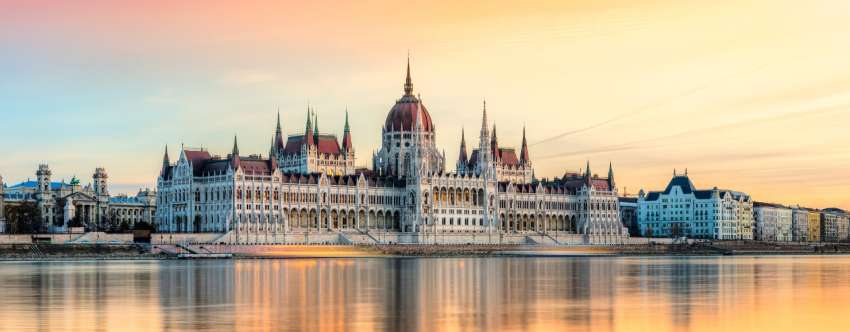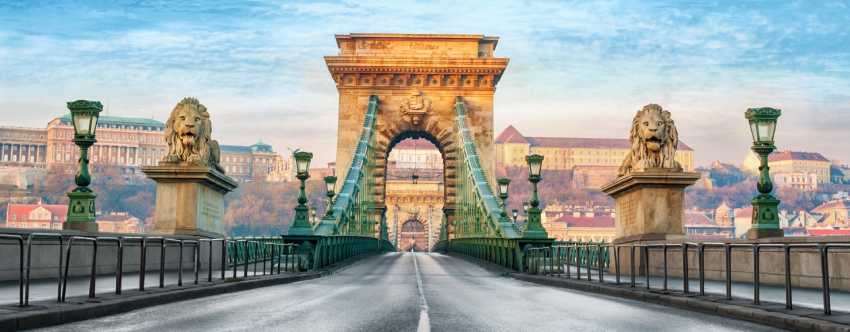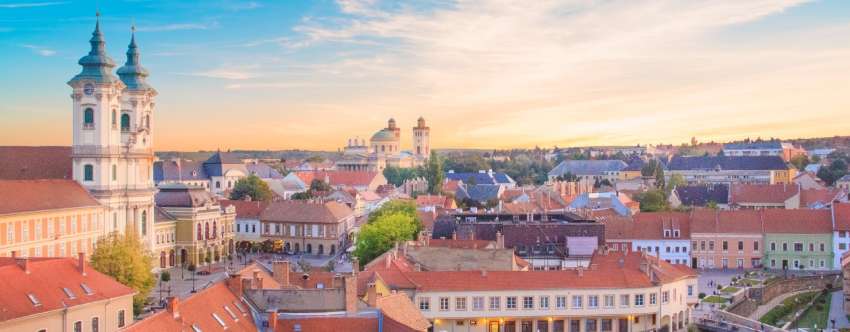Living and Working in Hungary
Information & guidance about seasonal jobs in Hungary
Seasonal jobs in Hungary
We don’t have any jobs matching this search. Below you’ll find a selection of our most popular vacancies!
- Adventure jobs, Hotel jobs, Tourism
- Bulgaria, Croatia, Egypt, Greece, Italy, Spain, Turkey
- Hotel jobs, Tourism
- Cyprus, Greece, Spain
- Adventure jobs, Ski & Snowboard Instructor, Ski & Winter Resort, Tourism
- Canada, Japan, New Zealand, Switzerland, United States
- Tourism
- Cyprus, Greece, Spain
- Hotel jobs, Tourism
- Cyprus, Greece, Spain
- Chef & Cookery, Hotel jobs, Tourism, Waitress-Waiter
- Spain
Interesting facts about Hungary
Language: Hungarian
Currency: Forint
Capital city: Budapest
Population: 9.79 million
Famous for: Hungarian viticulture and the beautiful old town of Budapest!
Good to know: the Rubik’s Cube comes from Hungary!
Work in Hungary
Working conditions in Hungary
A normal working week here lasts about 40 hours per week. Working hours are usually 8 hours per day and are based on a full-time working week of 5 days. The working day usually starts at 8 or 8:30 am and ends around 5 pm. Friday is often a short day, and many companies close their doors at 4 pm or even earlier.
Labour market in Hungary
There is a high demand for skilled workers in Hungary. This means that foreign applicants also have a good chance of finding employment in companies with foreign participation. According to the Hungarian Chamber of Industry and Commerce, there is always a demand for engineers, doctors, technicians and skilled workers in the country. Furthermore, there is a high demand for executives in sales, distribution and marketing. Application programmers are also always in demand.
The unemployment rate has fallen continuously since 2011 and was just 3.4 per cent in 2019. The average gross salary in 2021 was 15,063 euros per year. The service sector is the strongest at 55 per cent.
Salary in Hungary
The minimum wage in 2022 is 200,000 HUF (€575) per month. The average salary here in 2024 is €1385 per month.
Opening a bank account in Hungary
When you move to Hungary, you will of course have to make some preparations. To receive your Hungarian salary, it makes sense to open a Hungarian bank account to avoid unnecessary exchange rate surcharges.
Fortunately, opening a Hungarian bank account is quite easy. All you have to do is go to a bank branch. Make sure you have proof of your address in Hungary and a valid passport or ID card. Examples of large banks here are CIB Bank, OTP Bank and Budapest Bank.
Working in Hungary: Taxes
Living and working in Hungary is not only advantageous because of the low cost of living, the country also offers many tax advantages. In fact, tax rates here are much lower than in Germany or France. If you work and live here, you will pay a flat tax rate for your income tax of only 15%.
Due to the low corporate income tax rate of only 9%, it is also an interesting country for companies.
Working in Hungary: social security
Employees and self-employed persons in Hungary must pay social security contributions, including pension, health and unemployment insurance. In general, social security is guaranteed for Hungarians. The employer’s share of social security contributions is lower than the amount paid by the employee. In addition to the state pension system, there is also a private supplementary pension system. Insured persons are expected to supplement their inadequate state pensions by paying into private pension funds.
Working culture in Hungary
Hungarian companies are generally hierarchical and the environment is quite formal. Despite the formal atmosphere, a lot of small talk is done and building relationships is very important to Hungarians. They love long lunches and dinners with their colleagues and business partners. For Hungarians, this is the perfect time to get to know their colleagues and business partners better and build relationships.
In addition, punctuality, accuracy and status are very important to Hungarians. For example, in Hungary it is common to address colleagues by their title and then by their last name during a meeting. Also, try to always arrive at work on time. If you are unable to make it, let your supervisor know in advance that you will be late.
Working in Hungary as a German, Austrian or Swiss national
As a citizen of the European Union, you are allowed to stay in Hungary for up to 90 days without registering. If you wish to stay longer than 90 days, you must be able to prove, for example by means of an employment contract, that you are not a financial burden on the Hungarian state. You should register with the relevant authority by the 93rd day at the latest. To do this, you will need a valid ID document, an employment contract, a rental contract with a supplementary declaration from the landlord, proof of sufficient financial means and health insurance.
You will have to pay an administrative fee at the relevant office, which is approximately 1,000 HUF. When you have paid all the fees and submitted all the documents to the office, you will receive a registration certificate of unlimited duration.
A leaflet has been compiled by the German Embassy in Budapest with basic information for German citizens on residence in Hungary. This can be found here.
Jobs in Hungary
Since there is a constant demand for qualified employees on the Hungarian market, there is also a good chance for German-speaking job seekers to find what they are looking for in Hungary.
In particular, skilled workers often have a good chance here to boost their careers and get high-level positions. Doctors and IT specialists in particular have good opportunities here.
The most popular industries for expats are:
- customer care
- automotive industry
- IT
- mechanical engineering
- chemical industry
- environmental technology

Living in Hungary
Advantages of emigrating to Hungary
Not only does Hungary’s nature invite you to dream, but its architecture can also be seen as a real treasure trove of Roman ruins, medieval town houses and baroque churches. All of these vividly demonstrate the country’s past to visitors. The Hungarian economy is also booming, from which the country naturally benefits.
The cost of living is roughly comparable to that in Germany or Netherlands, if not even slightly cheaper. This means that you don’t need that much money to have a good time in Hungary.
Accommodation in Hungary
Before you actually move to Hungary, it is of course good to know in advance what you would spend on renting an apartment per month. For example, for a 1-room apartment in the centre of Budapest you pay around €435 per month. A similar apartment outside the city centre costs around €339 per month.
You can easily find flats in Hungary on Google. In addition, Ingatlan is also a handy website for searching for (furnished) flats and rooms. Other websites that can be useful when looking for your own accommodation in Hungary are:
- Towerbudapest
- Alberlet
- Apartments of Budapest
- Flats for Erasmus in Budapest
- Budapest, Hungary Apartment Rentals
- Nestpick
- Flatio
Transport in Hungary
In Hungary, you can use various forms of public transport.
The metro can only be found in the capital, Budapest. There are four lines in the city, with a total length of thirty-three kilometres.
In addition, the cities of Budapest, Debrecen, Miskolc and Szeged have their own tram systems. The Budapest tram system is the most extensive. The nostalgic trams are brought out on special occasions.
Some of the oldest railway lines in Europe are in Hungary. The country is therefore very popular with railway enthusiasts. The country still has a fairly well-developed train network that can reach every corner. With the Eurail Hungary Pass you can take a train trip through Hungary.
Budapest is one of the main stops of the Orient Express, a historic train connection between Paris and Istanbul.
Bus transport in Hungary is also good and cheap.
Eating in Hungary
Eating and drinking in Hungary is very cheap, especially if you eat out. It is usually even cheaper than cooking at home. Of course you can enjoy the traditional Hungarian cuisine, but actually all kinds of cuisines are represented.
Some traditional Hungarian dishes are:
Goulash soup
Hungary is famous for this soup. On Hungarian menus, goulash is referred to as ‘gulyás’. Goulash soup is made with beef. In addition, a real goulash soup should also contain onions, paprika and potatoes.
Papriksás
Paprika is used in many dishes, such as fish, chicken and veal dishes. Dishes that contain paprika are called ‘paprikás’ in Hungarian.
Lángos
Lángos is dough fried in oil. The dough is usually brushed with sour cream and sprinkled with grated cheese. Lángos means ‘flame’ in Hungarian. It is a very popular dish that you can prepare at home but is also sold on the street.
Nightlife in Hungary
There are a number of Hungarian cities where you can go out. Budapest in particular has a lot to offer partygoers. In fact, the city is full of cosy pubs and karaoke bars. Furthermore, a weekend in Budapest is not complete without a party cruise, a visit to a hip ruin pub, an underground house party or an extravagant pool party.
The town of Siófok has also developed into a real party destination in recent years. This resort town, located on the shores of the huge Lake Balaton, has numerous clubs, discos and pubs.
Cost of living in Hungary
Average wages in Hungary are much lower than in Germany, Austria or Switzerland, but the cost of living is also much lower.
For a three-course meal for two in a mid-range restaurant in Budapest, you pay the equivalent of only €36. 0.5 litres of beer cost €1.68 in the restaurant and €0.77 in the supermarket. In addition, you pay only €39 per month for a gym membership and a cinema ticket costs about €5.28.
Landscape and nature in Hungary
Hungary has a lot to offer in terms of nature. Especially in the east of the country there are a number of extensive nature reserves.
Hungary’s landscape is characterised by its dry, warm climate. There are also beautiful steppes to be found. In addition, large parts of Hungary are forested, and you can still find beautiful rare plant and animal species here. Even in the mountainous regions, you will find extensive deciduous and coniferous forests.
Hungary’s rare animal species can mainly be found in the national parks and remote mountain areas. Woolly pigs, in particular, are special animals, even if these pigs look more like sheep with their woolly fur. Unfortunately, their numbers have declined sharply in recent years, but an annual woolly pig festival is still held in February. Hungary is also a paradise for birdwatchers. You have the opportunity to observe many different birds, especially at Lake Balaton and in Hortobagy.

Climate in Hungary
Hungary has a temperate continental climate. The winters are cold, wet and snowy, and the summers are usually very hot. Temperatures in summer can reach 25-30 degrees. Heat waves with temperatures between 35 and 40 degrees are not uncommon. Compared to many other countries in Europe, Hungary has relatively many hours of sunshine per year, namely around 2000.
Hungarian culture
Hungarians place a great deal of value on tradition and national heritage. You can still experience Hungarian folk culture everywhere in Hungary. There are several museum villages, open-air museums and villages where old customs are still kept alive all over the country. In the traditional Hungarian village of Hollókő, you can admire houses and buildings from the 17th and 18th centuries and experience old traditions. It is therefore not surprising that this village is on the UNESCO World Heritage list.
Hospitality is very important to Hungarians. The local people are very friendly, courteous and helpful, and you will be welcomed with open arms. Family is very important in Hungary, and it is common for entire families to live in one house. As a result, grandparents often have a great influence on the upbringing of their grandchildren.
Bathing culture is also characteristic of Hungary. It is a country with thermal water and no fewer than 1,500 thermal springs. There are also up to 450 public baths here.
Highlights in Hungary
Lake Balaton
Lake Balaton in Hungary is the largest lake in Central Europe. The lake, which covers almost 600 square kilometres, is located in the national park of the same name in the west of the country, near the towns of Siófok, Keszthely and Veszprém. The area around the lake is particularly lively during the summer months. Swimming competitions are held from time to time. You can also go surfing there and watch birds like the black stork to your heart’s content. It is also possible to take part in rowing regattas or simply relax by the lake.
Budapest
Right on the Danube lies the capital and largest city of Hungary: Budapest. The cultural city is full of historical attractions, including the Millennium Monument, St. Stephen’s Basilica ‘Szent István Bazilika’, City Park ‘Városliget’, Andrássy Avenue and many different bathhouses and the Great Market Hall ‘Nagycsarnok’ in the ninth district.
The city is divided into the parts Buda and Pest. Pest is mainly a business district, where, among other things, the parliament building, the city park and Heroes’ Square are located. The other part of the city, Buda, also offers numerous attractions, including an ancient amphitheatre, the remains of the Roman city of Aquincum, the Kassák Museum and the Óbuda town hall. Together, these districts form the increasingly popular and modern Budapest.
Sziget
The Sziget Festival is also the most famous festival in Europe. This seven-day music festival usually takes place in the first week of August. The Sziget Festival takes place in Budapest on Óbuda Island. Sometimes as many as eighty thousand visitors come every day. The first time the Sziget Festival took place in Budapest was in 1993. Besides music, there are also circus performances, street theatre, dance performances and fashion shows.
Aggteleki National Park
In the north of Hungary lies the Aggteleki National Park. This nature park has been on the UNESCO World Heritage List since 1995. The park covers almost two hundred square kilometres. Here you can visit the Baradla Cave, among other things. You can also take beautiful walks, horse rides, canoe trips or bike rides. And a visit to a museum is also one of the possibilities.
Danube Bend
The hilly area around the Danube Bend is a beautiful part of the country. The Danube Bend is a kink in the Danube that starts at the northern city of Esztergom and winds its way to Budapest. The area around the Danube Bend is characterised by medieval castles, palaces and, for example, the largest cathedral in Hungary, the Esztergom Basilica. It is also possible to make the journey by boat.

Healthcare and health insurance in Hungary
Healthcare and social security are well regulated in Hungary. If you want to live and work in Hungary permanently, you must apply for a Hungarian health insurance card (TÁJ-kártya). To do this, contact your local Hungarian National Health Insurance Fund (OEP) office.
This health insurance card provides full coverage for basic care (e.g. visits to the GP, specialist, hospitalisation, dentist and emergency care). However, please note that treatments in private clinics are not covered or are only partially covered. The medication prescribed by your doctor is partially reimbursed by the health insurance company. You only pay the excess. Also, make sure you always have your health insurance card with you when you pick up your medication at the pharmacy. Most medications are much cheaper here than in Western Europe.
Visa and travel insurance in Hungary
If you are a EU citizen in Hungary, you do not need a visa or a work permit to live and work here. Would you like to stay longer than 3 months or permanently? Then you have to register with the Hungarian government. You must be able to prove that you have a fixed income of at least €350 per month or a total of €1400. You must also be able to present a valid ID, a rental/purchase contract and a European Health Insurance Card (EHIC).
Do you want to be sure that you can travel to Hungary without any worries? Then you can take out travel insurance. With some insurance companies, you can choose from different packages. Before you take out travel insurance, you should consider which parts of the insurance you need. By taking out a complete travel insurance policy (all modules), you may be double insured. For example, it could be that your car insurance or health insurance in the UK already covers certain risks.
Safety in Hungary
Hungary is a safe country and there are no particular safety risks. However, beware of pickpockets in busy cities like Budapest, especially on public transport and at crowded tourist spots.








